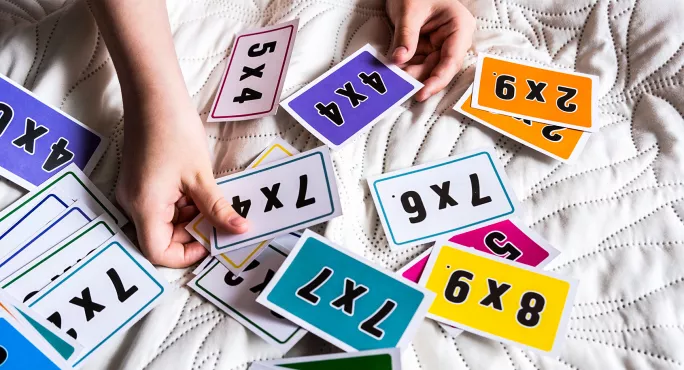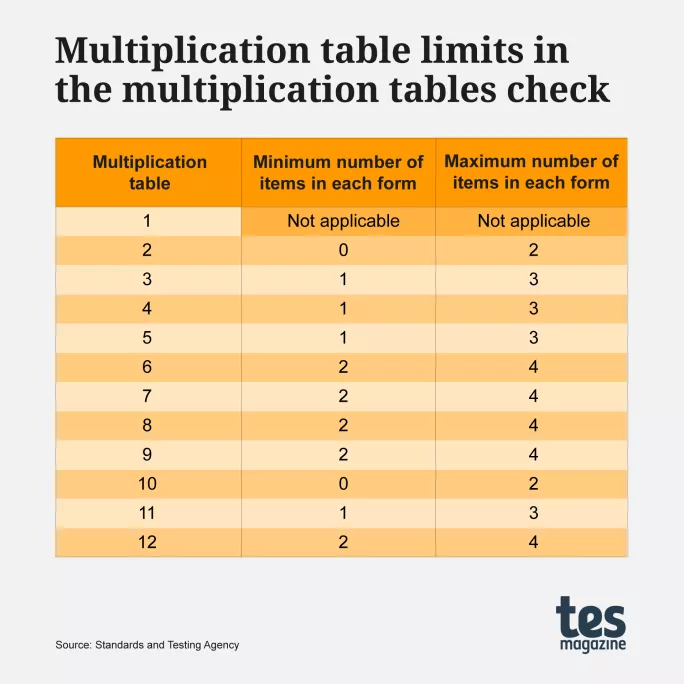At the end of Year 4, all pupils in maintained schools, special schools or academies (including free schools) in England are required to take the multiplication tables check.
Having launched in 2022, this statutory test is a relatively new addition to the range of primary-level assessments. Here we shed light on what it entails.
What is the multiplication tables check?
The multiplication tables check (MTC) is a short computer-based test that aims to determine whether pupils can recall their two to 12 times tables ÔÇťfluentlyÔÇŁ.
Pupils take the MTC online, answering 25 multiplication questions. They have six seconds to answer each question with a three-second pause between questions. Given this, the test should last no longer than five minutes for each pupil.
the six-second time limit was informed by research that it carried out during a trial with 1,124 pupils where three different time limits were trialled.
From this, six seconds was deemed the most appropriate time to allow children to recall and input their responses without allowing them enough time to work out the answer.
Other key aspects of the MTC are:
- The test is hosted online, so schools must use a tablet or computer with internet access to conduct the test.
- The questions appear one at a time, with a single question and a box for the pupil to input their answer using either a keyboard or a touchscreen device.
- Pupils cannot use calculators or any writing implements.
- Schools can ÔÇťtest driveÔÇŁ the computer program with pupils before they take the test to ensure that they are familiar with the software.
When is the multiplication tables check?
The MTC is available over a two-week window in June each year, with schools allowed to administer it at any time within this window. In 2026, the two-week window starts on Monday 1 June.
More on primary assessment:
Is there a pass mark for the multiplication tables check?
No, the MTC does not have any pass mark.
School-level results and individual pupil results will be made available to schools, which should enable them to identify any areas where pupils would benefit from further times-table support.
However, data from the tests is not used to inform league tables and it is not broken down by school in the public domain.
What is considered a good score?
A good score in the MTC is generally considered to be 20 out of 25. In recent years around a third of pupils have achieved full marks.
In 2023-24, the average score for all pupils was 20.6, and 32 per cent of girls and 35 per cent of boys achieved full marks.
When do the results come out?
The national attainment data for the MTC is released in November each year. Find the data from the 2023-24 check .
Read more:
Do schools have to share results with parents?
The Department for Education with their parents and carers, similar to with other national assessments.
Parents are not expected or required to do anything special to prepare their child for the check, although the DfE states that as part of ÔÇťusual practice, teachers may ask [parents] to practise times tables with [their] childÔÇŁ.
Which questions are the most common?
The assessment consists of multiple forms and each pupil is randomly assigned one of these available forms.
Information from the STA explains that while no questions from the one times table are asked, there is an emphasis on the six, seven, eight, nine and 12 times tables because, it states, ÔÇťthese have been determined to be the most difficult multiplication tablesÔÇŁ.
The table below shows the minimum and maximum number of times pupils can be asked a question from each different times table.
How can teachers help pupils to prepare for the test?
Find a range of multiplication tables check teaching resources designed to help pupils prepare for the test here.
For the latest education news and analysis delivered directly to your inbox every weekday morning, sign up to the Tes Daily newsletter






